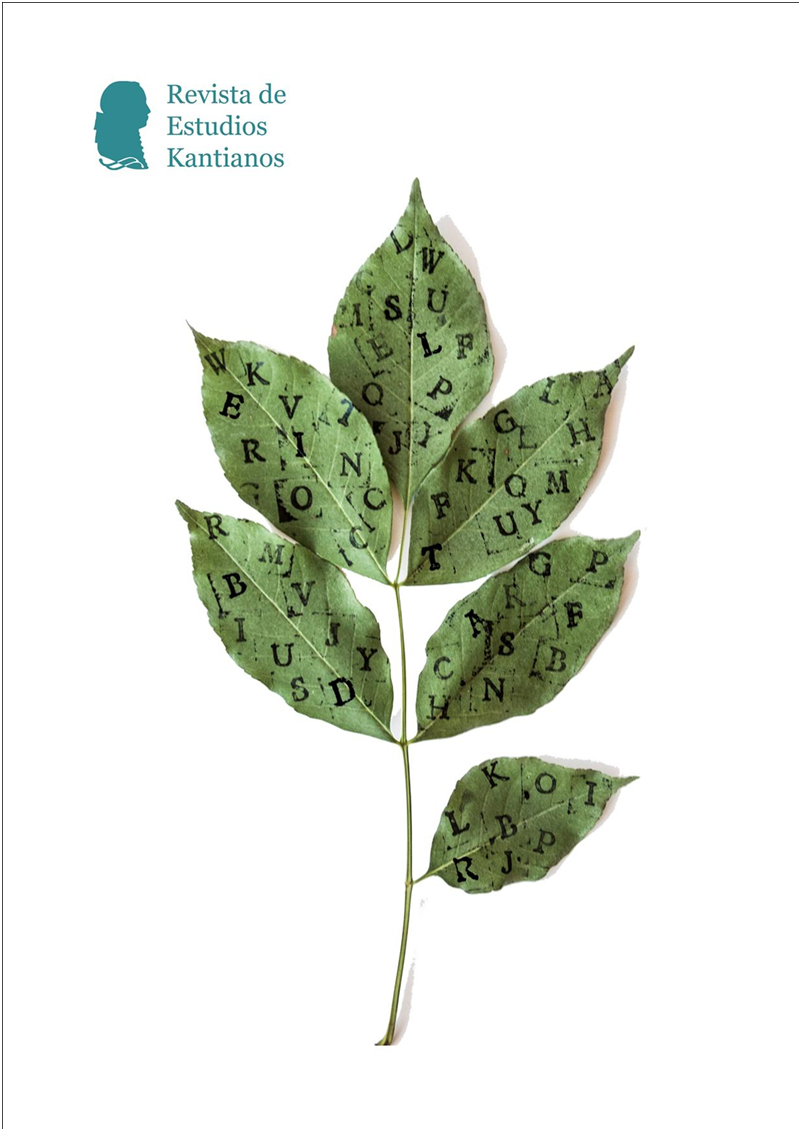La función de ‘lo problemático’ en la distinción entre juicio y proposición en la Lógica y en la Crítica de la razón pura
DOI:
https://doi.org/10.7203/REK.9.1.28239Keywords:
Realidad lógica, error, juzgar problemático, prejuicio, juicio provisional, antinomia. Abstract
Abstract
La distinción que Kant establece entre juicios y proposiciones, en la Lógica, tiene su fundamento en la diferencia de origen modal entre juicios problemáticos y asertóricos. Si se toma en consideración que en la Crítica de la razón pura los juicios asertóricos se definen por el carácter ‘efectivamente real’ que conlleva su afirmación o negación, la pregunta que naturalmente surge es ¿cómo debe entenderse el significado de los juicios problemáticos en los que no es posible aseverar algo como realmente existente, siendo que, en la Crítica de la razón pura, Kant hace depender el sentido y la significación de un juicio, de que nos sean dadas intuiciones? Tomando en consideración la aproximación al tema de los juicios problemáticos de autores como Capozzi (2002) y Vanzo (2012), este ensayo intenta dar cuenta del significado y la función que cumple el concepto de lo problemático en relación con la búsqueda de la verdad y el descubrimiento del error en el pensamiento de Kant. De modo específico, se defiende su coherente relación con los juicios provisionales y prejuicios, así como su aplicación en la aproximación dilemática a la antinomia de la razón.
 Downloads
Downloads
 References
References
Capozzi, M. (2002). Kant e la lógica. Bibliopolis.
Capozzi, M. (2006). Kant on Heuristics as a Desirable Addition to Logic. En C. Cellucci y P. Pecere (Eds.), Demonstrative and Non Demonstrative Reasoning in Mathematics and Natural Science (pp. 123–181). Edizioni
Università di Cassino.
Capozzi, M. (2018). La prima antinomia di Kant: questioni logiche. Studi Kantiani, 31, 11–42.
Cicovacki, P. (2002). Between Truth and Ilussion: Kant at the Crossroads of Modernity. Rowman & Littlefield Publishers.
De Bianchi (2015). When Series Go in indefinitum, ad infinitum and in Infinitum Concepts of Infinity in Kant’s Antinomy of Pure Reason. Synthese, 192, 2395–2412.
Grier, M. (2001). Kant’s Doctrine of Transcendental Illusion. Cambridge University Press.
Laos, C. (2022). Los planetas parecen retroceder. Reflexión, apparentia y error en Kant. Con-Textos Kantianos, 16, 100–127.
La Rocca, C. (2001). Vorläufige Urteile und Urteilskraft. Zur heuristischen Logik des Erkenntnisprozesses. En V. Gerhardt (Ed.), Kant und die Berliner Aufklärung. Akten des IX. Internationalen Kant-Kongresses, Vol. II (pp. 351–361). Walter de Gruyter.
Lu-Adler, H. (2018). Kant and the Science of Logic: A Historical and Philosophical Reconstruction. Oxford Scholarship Online.
Merritt, M. (2015). Varieties of Reflection in Kant's Logic. British Journal for the History of Philosophy, 23(3), 478–501.
Regvald, R. (2015). Kant und die Logik. Am Bespiel seiner „Logik der vorläufige Urteilen”. Duncker & Humblot.
Stuhlmann-Laeisz, R. (1976). Kants Logik. Eine Interpretation auf der Grundlage von Vorlesungen, veröffentlichen Werken und Nachlass. Walter de Gruyter.
Vanzo, A. (2012). Kant on Truth-Aptness. History and Philosophy of Logic, 33(2), 109–126.
Vázquez Lobeiras, M. J. (1998). Die Logik und ihre Spiegelbild. Peter Lang.
Downloads
Published
How to Cite
-
Abstract143
-
PDF (Español)31
Issue
Section
License
![]()
The authors who publish in this journal agree with the following terms:
- The authors retain their copyright and guarantee to the journal the right to be the first to publish the work and to license it under a Creative Commons Attribution License that allows others to share the work with an acknowledgement of its authorship and the initial publication in this journal.
- Authors may separately establish additional agreements for non-exclusive distribution of the version of the work published in the journal (for example, placing it in an institutional repository or publishing it in a book), with acknowledgement of its initial publication in this journal.
- Authors are allowed and encouraged to disseminate their work electronically (e.g., in institutional repositories or on their own website) before and during the submission process, as this can lead to productive exchanges as well as earlier and greater citation of published work (see The Effect of Open Access).








